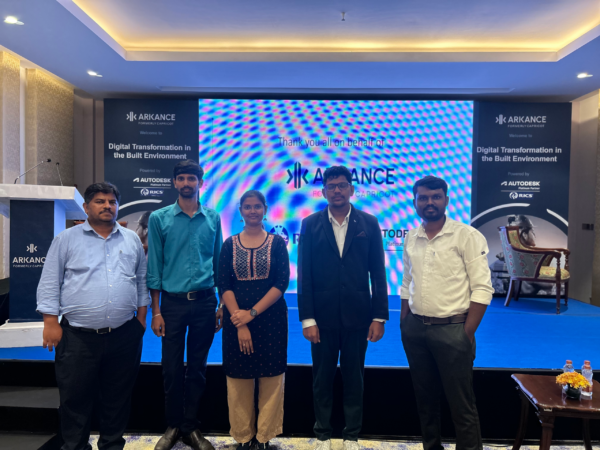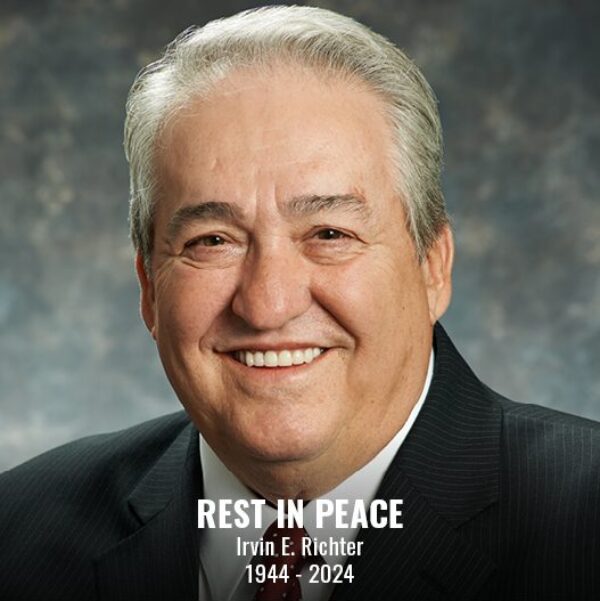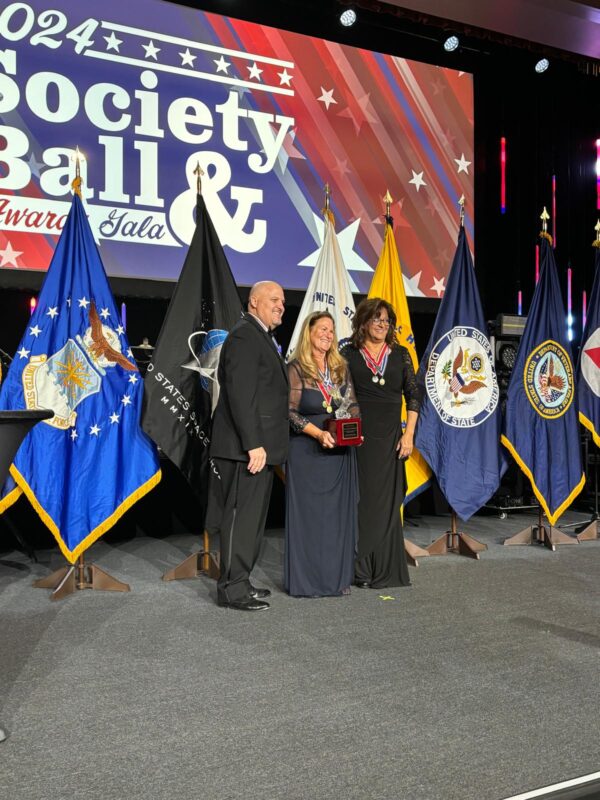
July 15, 2024 | Articles
Construction’s Digital Transformation & The Tools of Modern Project Management

All working professionals, whether high-school teachers, corporate accountants, or IT specialists, would benefit from additional development opportunities. In the field of construction management where managers are responsible for the delivery of multi-million dollar projects with the focus on time, budget, and quality, personnel need regular guidance and learning experiences to ensure they are capable of handling such complex tasks. This is especially true for junior personnel who are beginning their careers in the construction industry. But adult learning can be a challenge to implement effectively. Time constraints, in particular, can limit the potential for developmental opportunities. In this busy context, it is important that a company’s senior leadership consciously imbue their routine leadership activities with educational value.
“We’re all mentors and educators,” says Dominick Fickeria, a senior vice president and regional manager for Hill International, Inc.’s Northeast operations. But Dom is cited specifically by colleagues and junior members of his staff as an exceptional leader and mentor within the industry. In addition to lecturing on construction management at New York University (NYU) for the past ten years, Dom has led training programs for two city agencies in scheduling, estimating, and project management. He’s also worked with tradespeople on blueprint reading and estimating. He regularly harnesses this teaching experience in his capacity as a leader and mentor in his own office. His methods and the comments of his mentees may be useful in considering how to best offer semi-structured, useful professional development opportunities within the context of the work environment and at no extra cost to a firm.
On the one hand, there is a body of knowledge that project managers need to know—for example: how to use specific project management information system software; what a standard project life cycle looks like; how to identify a potential risk in a certain type of project; various documentation procedures; understanding changes in scope, not only for the project they may be working on, but changes in the scope of the services that they as professional managers have to provide; etc. Attaining competency in this body of knowledge is a prerequisite to entering the field of project management. And each professional field has its own body of knowledge, a sine qua non for entering the field. But there are many other valuable assets for a project manager to cultivate throughout a career. Among these are various “soft skills,” experience, professional planning abilities, time management, and attitude towards one’s clients and colleagues. These are what senior professionals can most effectively communicate to junior professionals to mold successful project managers. These are also skills which are transferrable and valuable in many different industries.
Critical to nearly every aspect of the project manager’s role is effective communication, both oral and written. This so-called “soft skill” is one of the most important skills in any industry. Dom speaks and writes with remarkable clarity and candor. In this regard he sets an excellent example for everyone with whom he works. Yet, despite the truism that one must “lead by example,” a proactive approach to mentorship is more effective than an exemplary one.
Document Control Specialist Almando Perez, bringing more than 15 years of document control experience to Hill, is hardly a junior professional. Nevertheless, Almando has recently begun supporting the proposal team of Hill’s New York operations. “I certainly don’t have as much experience putting together presentations for my colleagues who write proposals as I do in document control,” says Almando. “But I have appreciated the opportunity to learn more about this side of the industry. Dom offered specific support to me while I was putting presentations together by adjusting the language and layouts of my work. I’ve really valued his guidance and feel more equipped to participate in the proposal process now.”
In addition to offering specific guidance with regard to his “soft skills,” Dom also offered a new experience to Almando. This is critical. Other members of the New York team celebrated the potential for exposure to new experiences as well. Inspector Mostafa Haridi, for instance, says: “Your goal as a young civil engineer is to get as much experience in different parts of the industry as possible. Being at Hill, especially under Dom, I have been able to fulfill my interest in moving from one project to another. Dom has been very helpful by putting me in different spots on different projects so I can get an idea of varying jobs and roles. Ultimately, he is helping me grow as a professional.”
Alkistis Romosiou, an assistant project manager for Hill, shares Mostafa’s enthusiasm for experience. “I’ve really loved being able to transition from a project with more on-site experience to a different project that offers more procurement experience,” she says. “Since he hired me, Dom has been directly involved in making these different experiences available for me.”
Both Environment, Health, and Safety Technician Mikhail Natanov and Office Engineer Utsavi Jani mirrored the sentiments of Almando, Mostafa, and Alkistis, regarding the opportunity for diverse experiences and the potential for growth from those experiences. This desire to be exposed to new things in the workplace was consistently strong for each of the five junior professionals interviewed. Each interviewee also agreed that it was Dom who provided them with the diversity of experience they feel that they require for growth.
In part, Dom supports these employees in this way because that is what they want from him. He listens to his employees and learns about their passions and ambitions. This listening puts Dom in an excellent position to support their growth. Even in situations where junior employees have an interest in highly specialized work as opposed to diverse work, senior employees can provide them with a platform for honestly expressing that interest.
Dom also puts his junior professionals into a variety of positions because he recognizes the professional importance of this diversity of experience at an early stages of a career. “It can be a real challenge for junior professionals to decide what career path they go down,” he says. “In construction management there are basically two paths: there is the technical path; then there is the operational, field path. These diverge significantly throughout the course of a career. So it’s very important for junior professionals to become aware that they want to pursue one path or the other. Experience is helpful in making this decision.”
Here Dom combines experience with professional planning. Knowing where one wants to go in a career is important. But then, knowing how to get there becomes essential. As junior professionals think about which path they want their career to take, the senior professionals around them are often the best equipped to guide the practical decision making that can lead to career advancement. Alkistis explicitly addressed the support that senior professionals can provide for juniors finding their way along a particular career path. “It’s necessary to have guidance in a career,” she says. “Without someone to help you find the right path, there will always be a ceiling.” She cited Dom’s knowledge as an asset to her own professional planning.
In addition to building an arsenal of skills, gathering direct experience in different fields, and planning a career, there are other tools that can be acquired along the career path. Some such tools are professional licenses. “Sometimes,” Dom says “a junior professional will not have familial or other significant obligations outside of work. For those individuals, completing things like certification programs or pursuing further collegiate education can be very helpful in the long run.” In accordance with this, Mostafa reports that he aims to acquire a professional engineering license in the next several years.
A final theme that came up in discussions with Dom and his mentees is attitude. For a young person in the face of challenging and high-stakes work, attitude is essential. Senior and junior personnel alike understand this. “I think there are always challenges, at any point in your career,” says Mikhail. “This is especially true for more junior professionals. But you’ve got to have a certain attitude towards the challenges. You can let them drive you. I try to learn from them.”
Utsavi mirrors Mikhail’s optimism. She says: “It’s important to be open to opportunities. You have to start somewhere.” Indeed, all of the junior professionals in Hill’s New York office recognize the difficulties of their work. But they all share an optimism rooted in their understanding of the attitude it will take for them to overcome the challenges of the professional environment. Words like discipline, patience, and diligence came up in their interviews.
Dom too mentioned the need for discipline, patience, and diligence. But more than these, Dom stressed passion. He said that the junior professionals had to find their professional passion. “It’s so necessary for every junior professional out there to find passion in what they do, no matter if that’s project management, carpentry, finance, whatever,” says Dom. In Dom’s case, his passion for mentorship at this stage of his career is clear.
“You learn, you earn, and then you return,” Dom says, quoting a mentor of his own. “I really believe that is true.” In his maxim, Dom calls upon other senior professionals to take an active responsibility for the professional development of their junior staff. It is certainly true that an excellent manager will exemplify good “soft skills” like communication, hold a wealth of experience, understand the paths through their field, and exhibit a strong attitude. But to be able to communicate these assets to junior personnel in an effective way is to create institutional strength and to help others find career fulfillment. Moreover, to truly support junior professionals in such a way is to exponentially amplify your influence in that field.
To discuss your own mentorship strategy with Dom, please reach out via email at [email protected] or call Hill International, Inc.’s New York office at (212) 244-3700.
Share

July 15, 2024 | Articles
Construction’s Digital Transformation & The Tools of Modern Project Management

July 10, 2024 | Articles
GC/CM at Post Falls: Managing Avista’s North Channel Dam Rehabilitation Project

June 23, 2024 | Articles
Irv Richter – An Innovator, A Pioneer, A Leader (1944 – 2024)

June 14, 2024 | Articles
Environment of Care Standards – Meeting the Challenge (Part Two)

June 13, 2024 | Articles
PMO for Public Transit Project Success: The Reopening of Philadelphia’s Franklin Square Station

June 7, 2024 | Articles

May 17, 2024 | Articles
Hill Interim Federal Market Sector Leader Jane Penny Receives Golden Eagle Award

April 11, 2024 | Articles
A Model Move: Managing Move-In at the Sylvia H. Rambo U.S. Courthouse